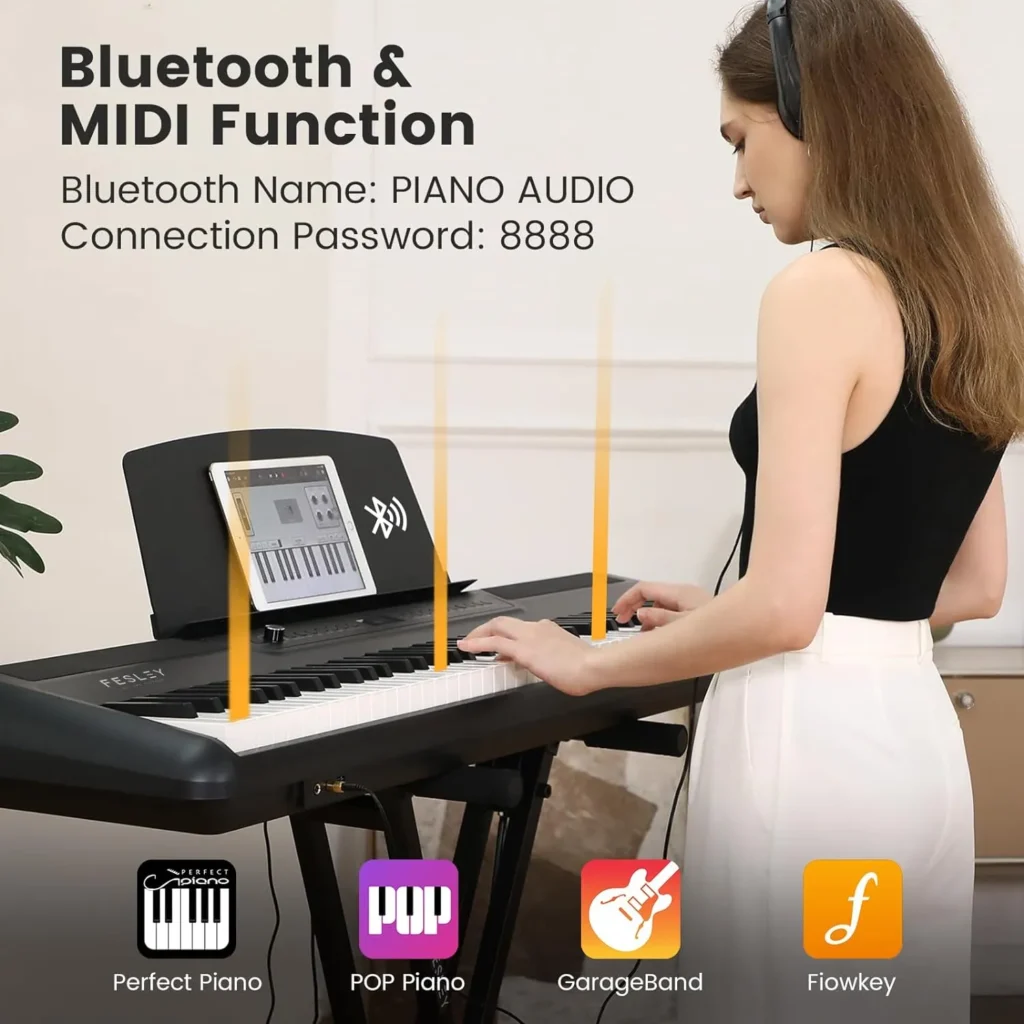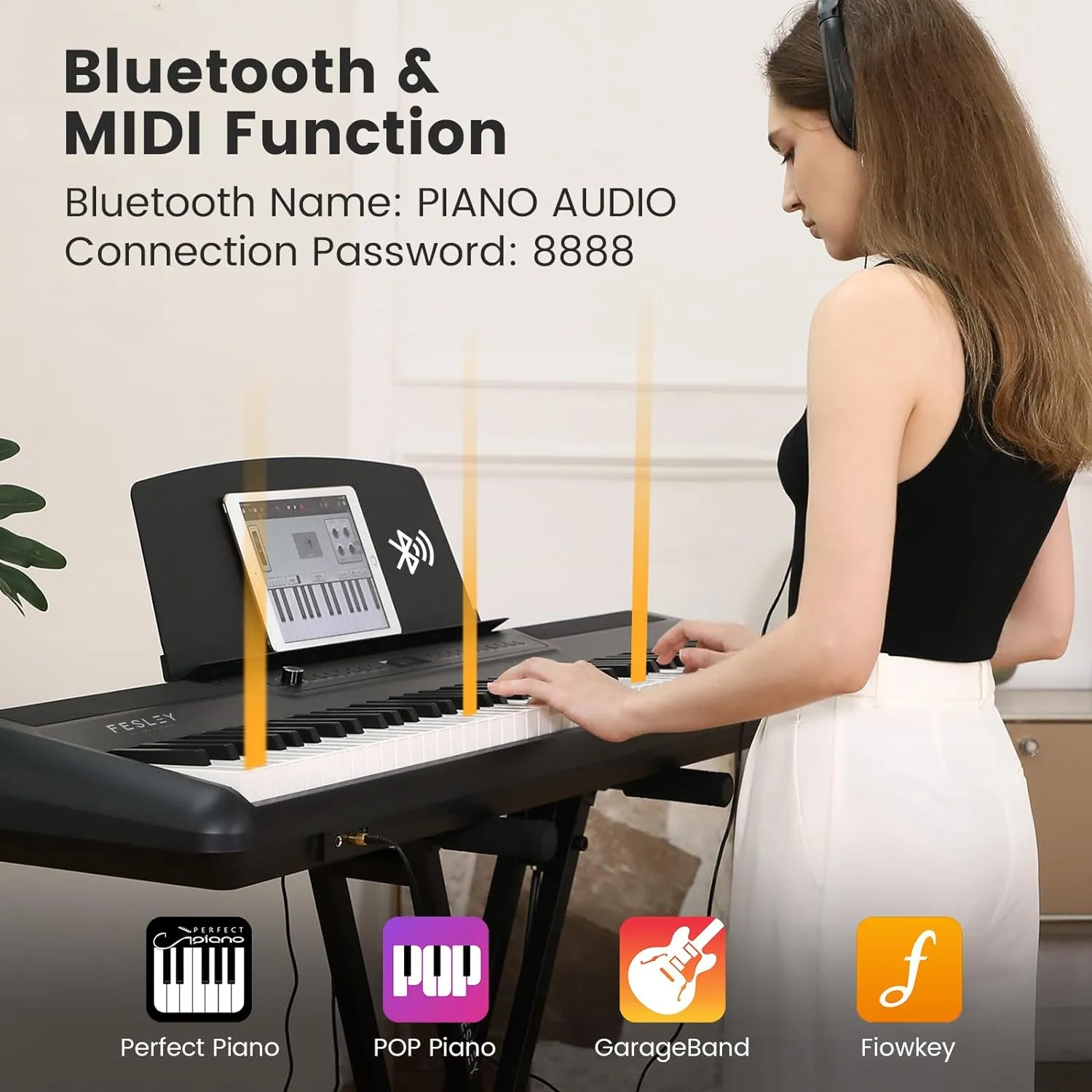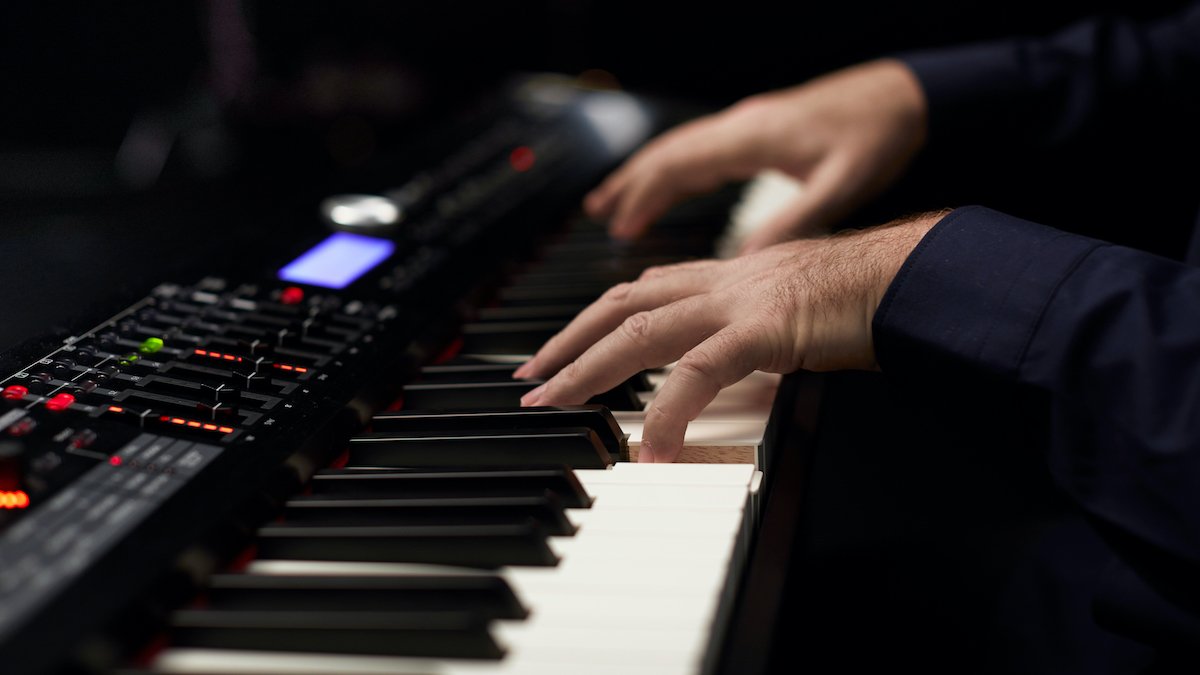When it comes to choosing a digital piano, one of the most important factors to consider is the number of keys. An 88 key digital piano is widely regarded as the best option for both beginners and professionals alike.
With its full-sized keyboard and realistic sound, it offers a playing experience that closely resembles that of an acoustic piano. In this article, we will explore the top options available in the market and help you find the best 88 key digital piano for your needs.
Before we dive into the specific models, let’s take a moment to understand why the number of keys is such a crucial factor. The standard acoustic piano has 88 keys, and this range allows pianists to play a wide variety of musical genres and styles.
It provides access to the full spectrum of notes, from the deep and resonant bass to the sparkling high treble. Having all 88 keys on a digital piano ensures that you have the same range and versatility as an acoustic instrument.
Furthermore, the size and weight of the keys on an 88 key digital piano are designed to mimic the feel of an acoustic piano. They are weighted or semi-weighted, meaning that they have some resistance when you press them down, just like the keys on an acoustic piano. This is important because it helps you develop proper finger strength and technique, allowing for more expressive playing.
Now that we understand the importance of having 88 keys and the benefits they offer, let’s explore some of the top options available in the market.
Whether you’re a beginner just starting your musical journey or a professional looking for a high-end instrument, there is a wide range of 88 key digital pianos to choose from. These pianos come with various features and price points, so you can find one that suits your specific needs and budget.
One popular option is the Yamaha P-125. This digital piano is known for its excellent sound quality and realistic feel. It features Yamaha’s Graded Hammer Standard (GHS) keyboard, which provides a heavier touch in the lower keys and a lighter touch in the higher keys, just like an acoustic piano. The P-125 also has a wide range of built-in sounds and features, making it suitable for both practice and performance.
Another top contender is the Roland FP-30. This digital piano offers a rich and expressive sound, thanks to Roland’s SuperNATURAL Piano sound engine. It has a PHA-4 Standard keyboard, which combines the feel of ivory and ebony with the durability of modern materials. The FP-30 also includes a variety of connectivity options, allowing you to connect it to your computer or mobile device for recording or practicing with apps.
These are just a few examples of the many 88 key digital pianos available in the market. Whether you prefer the sound and feel of Yamaha, Roland, or another brand, there is a wide range of options to choose from.
By considering factors such as sound quality, key action, and additional features, you can find the best 88 key digital piano that suits your musical needs and preferences.
Factors to Consider

Before diving into the specific models, it’s important to understand the key factors to consider when choosing an 88 key digital piano:
1. Sound Quality
The sound quality of a digital piano is crucial, as it determines how realistic and expressive the instrument will sound. Look for a piano that offers high-quality samples of acoustic piano sounds, as well as a wide range of other instrument sounds.
Additionally, pay attention to the piano’s polyphony, which refers to the number of notes it can play simultaneously. A higher polyphony count ensures that the piano can handle complex and layered pieces without cutting off any notes.
Furthermore, when considering sound quality, it’s important to take into account the piano’s sound engine. A powerful sound engine can produce more nuanced and detailed sounds, capturing the subtle nuances of an acoustic piano.
Some digital pianos even offer advanced features like resonance modeling, which simulates the sympathetic vibrations of the strings and soundboard, adding a layer of realism to the overall sound.
2. Key Action
The key action of a digital piano refers to how the keys feel when pressed. It’s important to choose a piano with a realistic key action that closely mimics the feel of an acoustic piano. Some digital pianos use weighted keys, which means that the keys have some resistance and respond to touch in a similar way to an acoustic piano.
Others may have graded hammer action, which means that the lower keys feel heavier and the higher keys feel lighter, just like on an acoustic piano.
Moreover, consider the touch sensitivity of the keys. A piano with adjustable touch sensitivity allows you to customize the response of the keys to your playing style. This is particularly important for pianists who require a high level of control and dynamics in their performance.
3. Connectivity and Features
Consider the connectivity options and additional features that the digital piano offers. USB connectivity allows you to connect the piano to a computer or other devices for recording or playing along with virtual instruments. MIDI compatibility is also important if you plan to use the piano with other MIDI devices.
Additionally, look for features such as built-in speakers, headphone jacks, and recording capabilities, which can enhance your playing experience.
Furthermore, some digital pianos offer Bluetooth connectivity, allowing you to wirelessly connect your piano to other devices such as smartphones or tablets. This opens up a world of possibilities, from accessing online learning resources to using piano apps that can help improve your skills and expand your repertoire.
Lastly, consider the overall design and aesthetics of the digital piano. Choose a piano that complements your personal style and fits well within your living space. Some pianos even come with additional accessories like matching stands or benches, which can add to the overall aesthetic appeal and functionality of the instrument.
4. Korg Grandstage
The Korg Grandstage is a powerful and versatile 88 key digital piano that is designed to deliver an authentic and expressive playing experience. It features Korg’s flagship SGX-2 piano sound engine, which provides incredibly detailed and realistic piano sounds.
The Grandstage also offers a wide range of other high-quality sounds, such as electric pianos, organs, and strings, making it suitable for a variety of musical styles. With its intuitive interface and robust performance features, the Korg Grandstage is a popular choice among professional musicians and keyboardists.
One of the standout features of the Korg Grandstage is its advanced keybed, which uses Korg’s RH3 (Real Weighted Hammer Action 3) technology. This keybed accurately replicates the feel of playing on an acoustic piano, with a heavier touch in the lower register and a lighter touch in the higher register.
This level of realism and responsiveness is crucial for pianists who want to express themselves fully and achieve a nuanced performance.
In addition to its exceptional sound and key action, the Korg Grandstage offers a range of performance features that enhance its versatility on stage. It has a dedicated panel for live performance, allowing musicians to easily switch between sounds and adjust parameters in real-time.
The Grandstage also includes a powerful effects section, with a variety of high-quality reverb, delay, and modulation effects that can be applied to any sound. This allows musicians to add depth and character to their performances, creating a truly immersive and dynamic musical experience.
Furthermore, the Korg Grandstage is designed with connectivity in mind. It offers a range of input and output options, including MIDI, USB, and audio outputs, making it easy to integrate with other musical equipment and software.
This makes it a versatile instrument for both studio recording and live performance, allowing musicians to seamlessly incorporate the Grandstage into their existing setup.
Overall, the Korg Grandstage is a top choice for pianists and keyboardists who demand the highest level of sound quality, key action, and performance features. Its combination of realistic piano sounds, authentic keybed, and versatile performance capabilities make it a standout instrument in the world of 88 key digital pianos.







